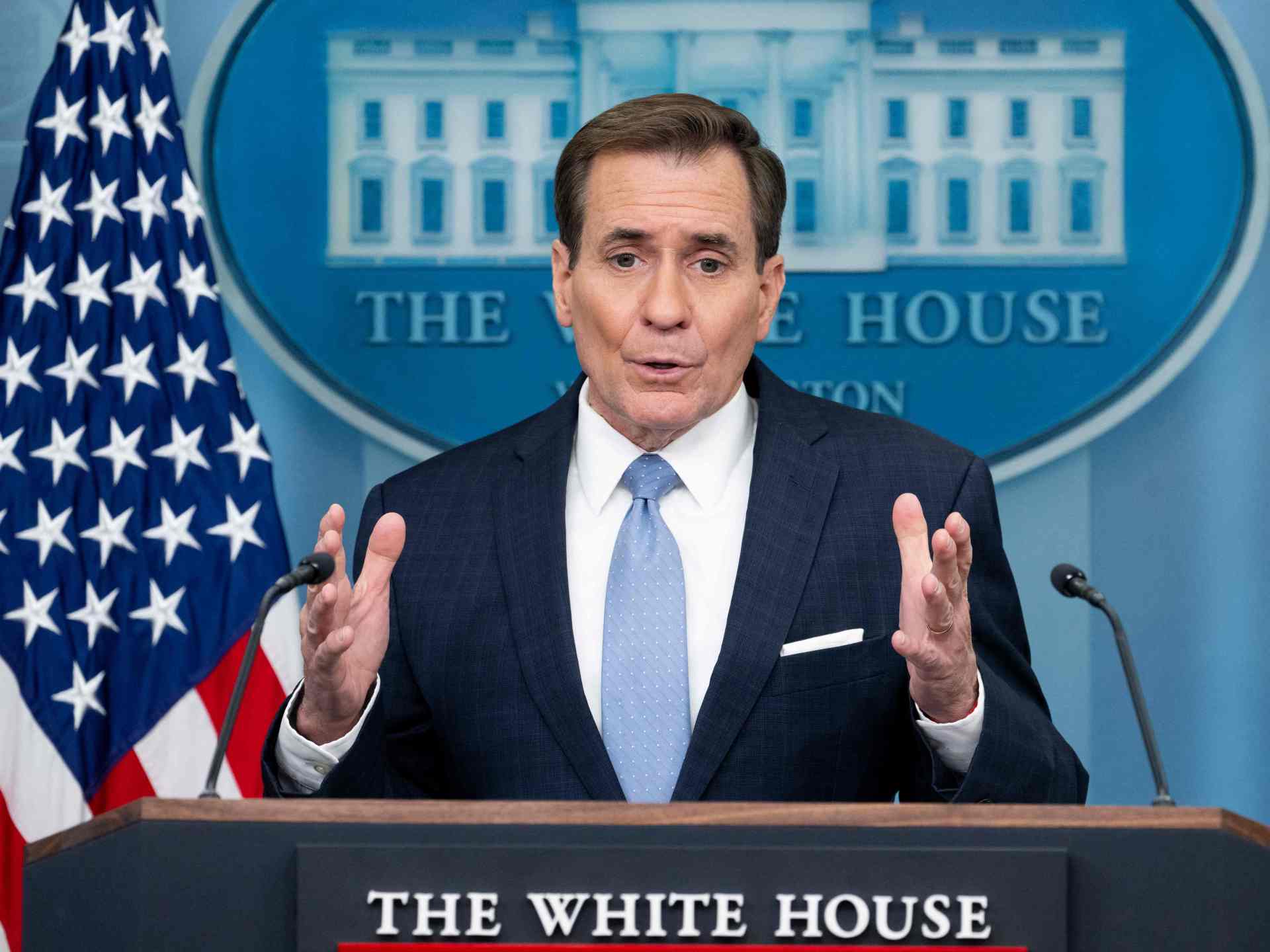US National Security Council spokesman John Kirby (French)
US National Security Council spokesman John Kirby confirmed that Washington will not support any major military operation in Rafah in the Gaza Strip without an implementable plan that guarantees the care of 1.5 million refugees there.
Kirby explained that America has concerns about some Israeli military operations and how they are launched, saying that his country needs to ensure that civilians are protected.
On the other hand, Kirby said that Washington did not see any evidence that the Islamic Resistance Movement (Hamas) stole humanitarian aid in the Strip.
The Israeli Prime Minister's Office said - the day before yesterday, Friday - that Benjamin Netanyahu had approved plans to launch a military operation in Rafah.
In a parallel context, during his meeting with German Chancellor Olaf Scholz - today, Sunday - in the coastal city of Aqaba (south), Jordanian King Abdullah II called for an "immediate and permanent ceasefire" in the besieged Gaza Strip, which has been ongoing for more than 5 months.
The Royal Court said - in a statement - that King Abdullah stressed, during his meeting with Schulz in Aqaba (328 km south of Amman), "the need for the international community to move urgently to reach an immediate and permanent ceasefire in the Gaza Strip."
He also stressed "the importance of intensifying efforts to protect civilians, and providing humanitarian aid to the Strip in an adequate and sustainable manner and delivering it by all possible means," warning of "the tragic humanitarian situation in Gaza, which requires redoubled efforts to prevent its aggravation."
Refusal to be displaced
The King of Jordan also warned of the danger of "stopping support for the United Nations Relief and Works Agency for Palestine Refugees (UNRWA), and its dangerous repercussions on the Gaza Strip, the West Bank and Jordan."
The King reaffirmed "Jordan's rejection of any attempts to forcibly displace Palestinians in the West Bank and Gaza, and attempts to separate them."
Famine now threatens most of the population of the besieged and devastated Strip, which numbers 2.4 million people, according to the United Nations.
In turn, the German Chancellor said that the large number of civilian casualties who may fall in an Israeli invasion of the city of Rafah in the Gaza Strip will make achieving peace in the Middle East region “very difficult.”
He added that this is one of the main pretexts that he will raise in his talks with the Israeli Prime Minister later today during his brief visit to the region.
On the other hand, Egyptian President Abdel Fattah El-Sisi confirmed on Sunday that his country rejects the forced displacement of Palestinians to its lands and will not allow it.
Today, during his meeting with European Commission President Ursula von der Leyen on the sidelines of the Egyptian-European summit, Sisi stressed the necessity of a ceasefire in the Gaza Strip.
I'm gravely concerned about reports of an Israeli plan to proceed with a ground assault on Rafah.
Further escalation of violence in this densely populated area would lead to many more deaths and suffering, especially with health facilites already overwhelmed.
#Gaza pic.twitter.com/hWichKUKj9
- Tedros Adhanom Ghebreyesus (@DrTedros) March 16, 2024
Countries and international organizations are warning of the consequences of any Israeli ground attack on Rafah, including the World Health Organization, which yesterday, Saturday, called on Israel to refrain from launching any attack.
The organization's director, Tedros Adhanom Ghebreyesus, wrote - in a tweet on the X website - "I am deeply concerned about reports of an Israeli plan to launch a ground attack on Rafah," describing this as "a new escalation of violence in this crowded area that will lead to more deaths and suffering."
Source: Al Jazeera + agencies

